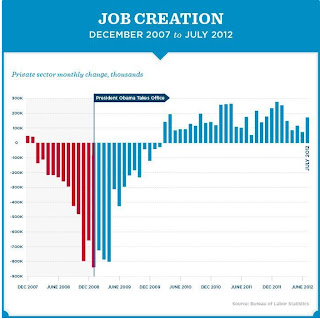Friday, September 28, 2012
Wednesday, September 26, 2012
Cafe Hayek Wages, Productivity, Rates of Return, and Investment: Quick Thoughts
From ; http://cafehayek.com/2012/09/wages-productivity-rates-of-return-and-investment-quick-thoughts.html
I've said it before, understanding this trend.... (http://www.irle.berkeley.edu/events/spring08/feller/productivity_wages_graph.gif ) is paramount to understanding the economy. Lots of questions follow as is clear from the professors discussion above as he himself is far from having addressed all the issues it brings up. I've brought up this simple graphic in the past and others simply eschewed it as being of no consequence based on its simplicity. But you can't do that now unless you know the answers to all the issues the professor brought up in his post on the issue. So my questions follow;
- Why are there NO other Keynesian professional economist that post here?
- Why am I the best representative of that point of view when it clearly is not marginalized with in the profession?
- Why is there not a more definitive answer to the inflation question. College tuition, health care, housing and automotive cost suggest that inflation may be under-estimated not over estimated.
- when you have to question the data that has clearly been reviewed over and over doesn't it suggest you maybe don't want to deal with the implications of the data.
- Why is it assumed that capital is taking a huge chunk of national income and NOT simply that greater shares are going to the very top as so much evidence indicates?
- How can you blame " tax or regulatory policies that artificially discourage investment" when they clearly are not effecting corporate profits? How would they just kick in at some certain level? It makes no sense. Why can't you even suppose that ever increasing gains are being limited by lost demand reflected in decreased wages? Explain to me what policy you have in mind that allows for these great gains but some how imposes a ceiling on them a some limit.
If ones whole professional position was in any way brought into question by issues like this I would think one would pursue to their great satisfaction the answers this issue brings up. WHAT IF YOU ARE WRONG? Is it possible that the problem here is something clearly described by the Keynesian position? What if he is right? Do you think you could ever come to that realization. Again this is as much a study of human psychology as anything. I've gone through such a transformation being an adherent the ideas of free markets, voting republican and even libertarian and despising the democratic party but then slowly coming to a new view that flipped my position. It's an astonishing transformation and I don't think many people go through such a thing. Maybe I flipped to the wrong side.... i don't think so but at least I know what such a transformation feels like. I am impressed that many people are completely incapable of such a transformation for complicated reasons of psychology that I can't claim to understand.
Corporate profits are at record levels, income gains are continuing to go to the top, tax rates are at record lows and still investment are NOT being made in real productive endeavors. All the surveys state its because of low sales... ie low demand. There is clearly something broke here and it's VERY difficult for supply siders to explain. demand siders have very elegant and logical and historically consistent explanations. I don't think you can explain my simple graphic... I don''t think you want to.
Tuesday, September 25, 2012
Supply side Lamarkianism
Reply to : http://cafehayek.com/2012/09/quotation-of-the-day-411.html
Quotation of the Day…
… is from page 263 of Deirdre McCloskey’s landmark 2010 volume, Bourgeois Dignity:
Workers in the United States and elsewhere grew radically better off from 1800 on, and 1900 on, and even from 1970 on because of the Bourgeois Deal, not because they went down and joined the union. How do I know? Answer: the nonunion people share nearly equally in the gain, even though they were paying as consumers for the fancier wages for union electricians in Michigan. The maximum of 14 percent of “concessions” extracted by bargaining or strike doesn’t come close to accounting for the great magnitude of rise in the real wage. There’s not enough profit – usually 10 or 15 percent of national income – to raise the level of the rest of national income by a factor of even two, that is 100 percent, much less the factor of eighteen it in fact rose after 1800.
As if the union wages didn't pull up the non-union wages. As if wages didn't accelerate with the strong union era's and fall off as they became week. If you're a non-union nurse you'll make more money in California where unionized nurses pull up all nurses wages even more than enough to cover the increased cost of living in this beautiful state. The economy works by demand. Wage growth results in a viscous cycle of demand and further wage growth and awful awful shared prosperity. Instead of a few billionaires there become lots of millionaires. The supply side economic fraud has been exposed and it's economic practitioners will be castigated to the economic-lamarkian equivalent dust bin of society and their profession. Complete profession careers of fraud. It survives as propaganda only through sheer power of the monied interest and all their vassals, courts, jesters and knights who pay homage and profit themselves from it


